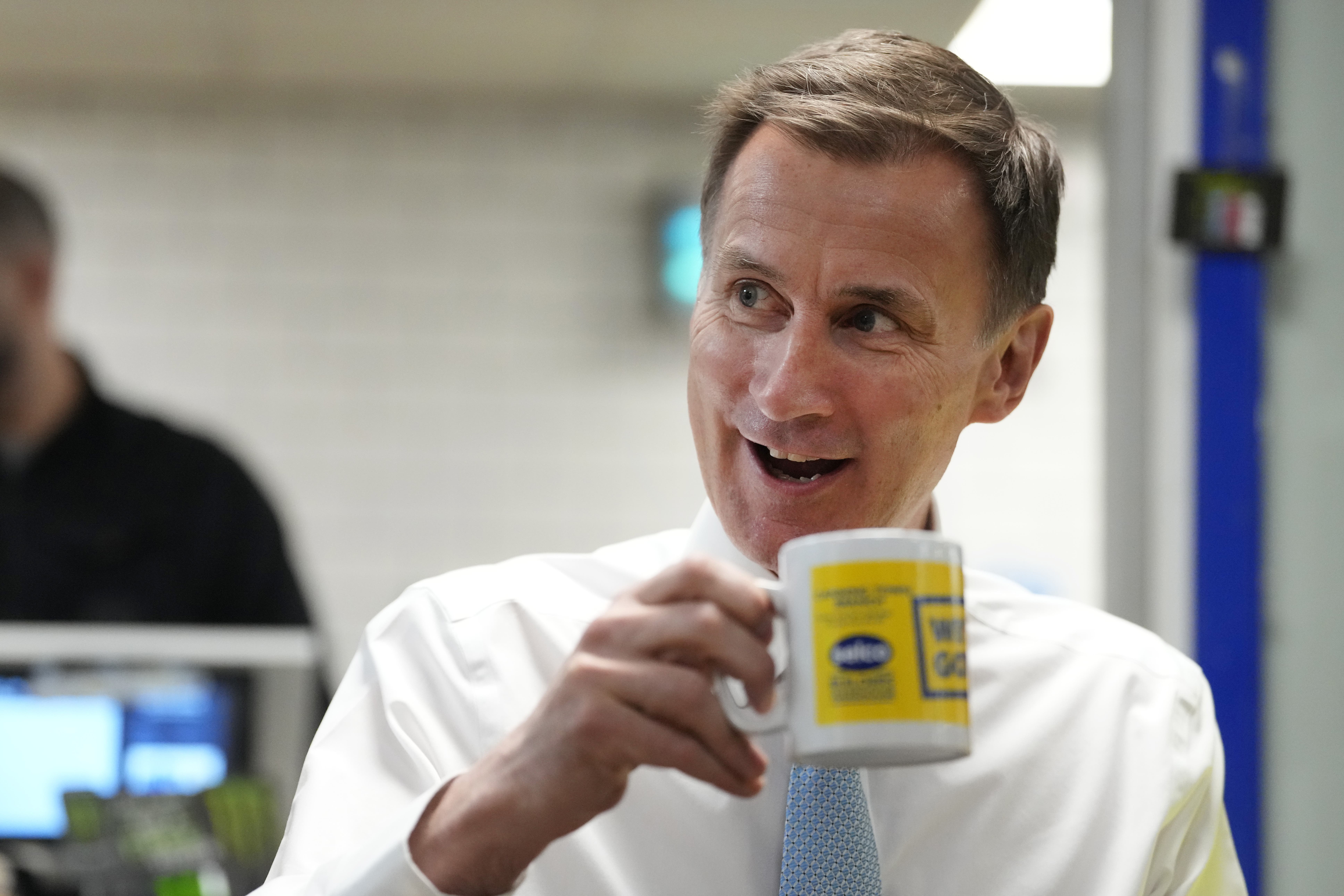UK probably left recession as economy grows 0.2% in January
The economy dipped into a recession at the end of last year, with output declining by 0.3 per cent over the fourth quarter

Your support helps us to tell the story
From reproductive rights to climate change to Big Tech, The Independent is on the ground when the story is developing. Whether it's investigating the financials of Elon Musk's pro-Trump PAC or producing our latest documentary, 'The A Word', which shines a light on the American women fighting for reproductive rights, we know how important it is to parse out the facts from the messaging.
At such a critical moment in US history, we need reporters on the ground. Your donation allows us to keep sending journalists to speak to both sides of the story.
The Independent is trusted by Americans across the entire political spectrum. And unlike many other quality news outlets, we choose not to lock Americans out of our reporting and analysis with paywalls. We believe quality journalism should be available to everyone, paid for by those who can afford it.
Your support makes all the difference.The UK economy rebounded at the start of the year and is likely to have left recession already after figures released on Wednesday showed modest growth in January.
Data released by the Office for National Statistics (ONS) said that GDP - a measure of national economic output - rose by 0.2 per cent in January, following a decline of 0.1% in December.
The services sector, which includes hospitality, culture and leisure, was the biggest contributor as it grew by 0.2 per cent during the month.
A strong month for retail sales also helped drive growth in January, with consumers making the most of post-Christmas promotions and spending more in supermarkets.
The economy could be turning a corner after dipping into a technical recession at the end of last year, with output declining by 0.3 per cent over the fourth quarter.
Chancellor Jeremy Hunt said: “While the last few years have been tough, today’s numbers show we are making progress in growing the economy - part of which makes it possible to bring down national insurance contributions by £900 this coming year.”
“But if we want the rate of growth to pick up more we need to make work pay, which means ending the unfairness of taxing work twice.”

But shadow chancellor Rachel Reeves said Britain remains “worse off” and that prime minister Rishi Sunak’s claims that his plan for the economy is working are “already in tatters after Britain was hit by recession last year”.
Liz McKeown, director of economics statistics at the ONS, said: “The economy picked up in January, with strong growth in retail and wholesaling. Construction also performed well, with housebuilders having a good month, having been subdued for much of the last year.
“These were partially offset by falls in TV and film production, lawyers and the often-erratic pharmaceutical industry. Over the last three months as a whole, the economy contracted slightly.”
Economists warned that despite figures showing the UK has likely only experienced a short and shallow recession, the overall outlook for the UK economy is “gloomy” and economic growth is “flatlining”.
Alfie Stirling, chief economist at the Joseph Rowntree Foundation (JRF), told The Independent: “I don’t think it’s a particularly significant day. Small movements in the decimal points either here or there make little difference either to the overall trajectory of the economy which is basically flatlining.
“A little bit of growth on the month but we are still down on the quarter and obviously that’s off the back of two quarters of negative growth so little change there.
“Secondly, the really important thing is how does it feel for families, what’s the actual economic prospects for the people that live in this country. And whether you measure that by GDP per head which is still down, we haven’t had growth in GDP per head in nearly two years or in terms of lived experience of the economy in terms of real earnings or prices. Things are incredibly weak and there is a lot of economic pain.
So I would say on the two important points, small movements in aggregate GDP are fairly immaterial.”
GDP per head is the amount of economic output split across the total population and shrank by 0.7 per cent in 2023.
Yael Selfin, chief economist at KPMG UK, said: “Forward-looking indicators point to further strengthening of momentum in February, bolstering the prospect that the UK experienced a short and shallow recession.
“Although economic performance has somewhat improved, the outlook remains relatively gloomy. Economic growth is not expected to materially pick up this year with demand impaired by the lingering impact of high interest rates. Meanwhile on the supply side, the sluggish outlook for business investment and weaker public sector investment will compound weakness in productivity and constrain long-term growth.”
Rob Wood, chief UK economist for Pantheon Macroeconomics, said: “Last year’s minor recession is already rapidly receding in the rear-view mirror as real wage growth drives improving household spending power.”
Join our commenting forum
Join thought-provoking conversations, follow other Independent readers and see their replies
Comments